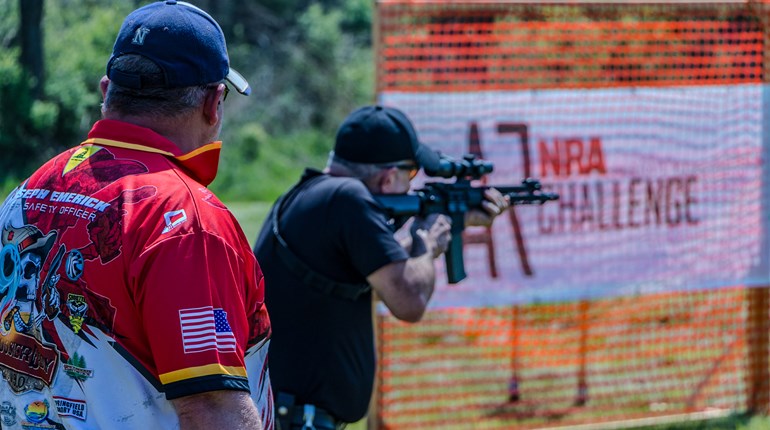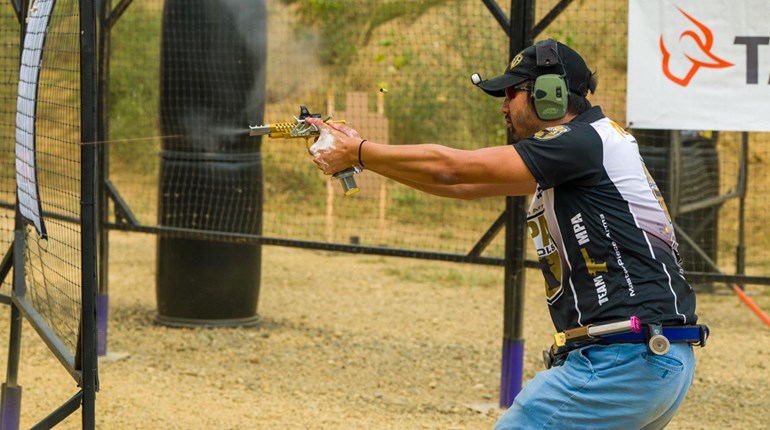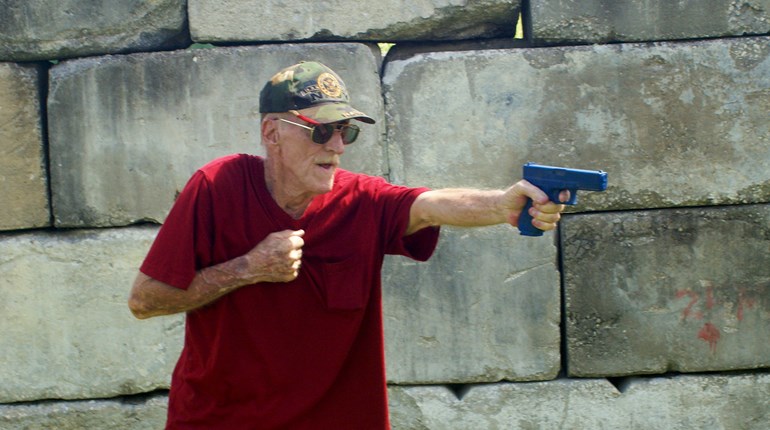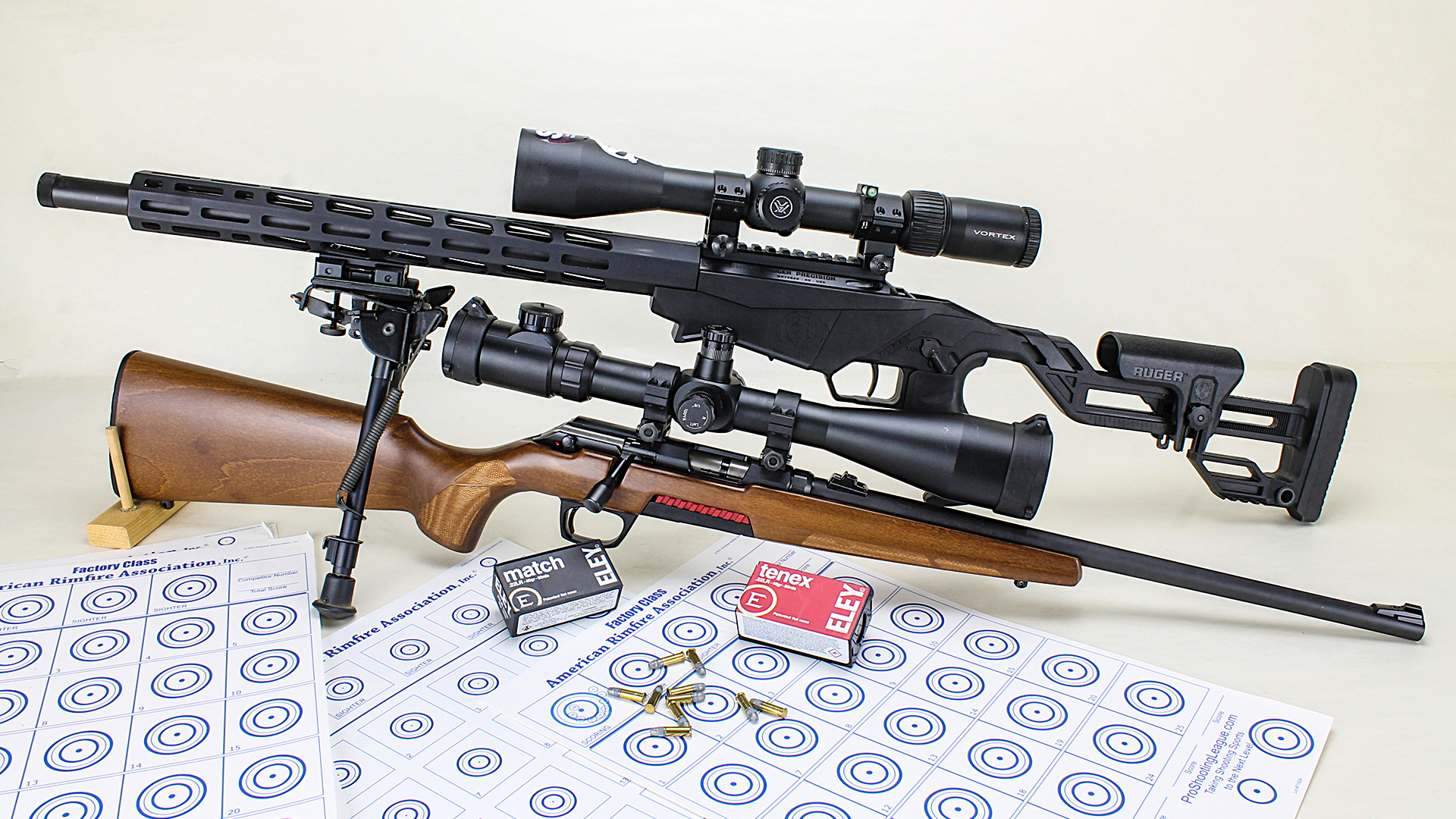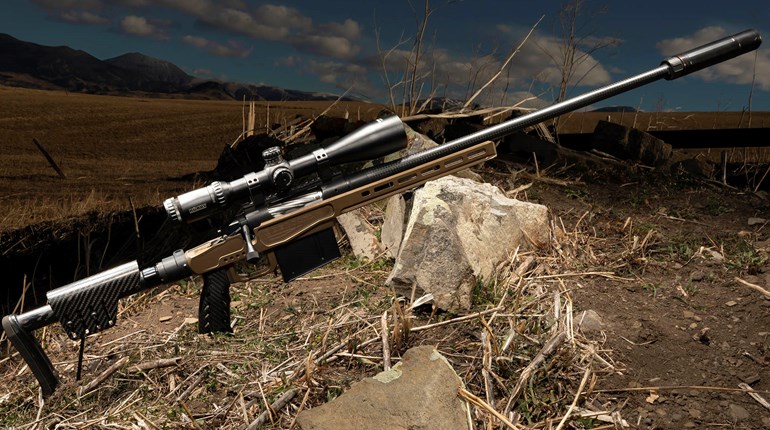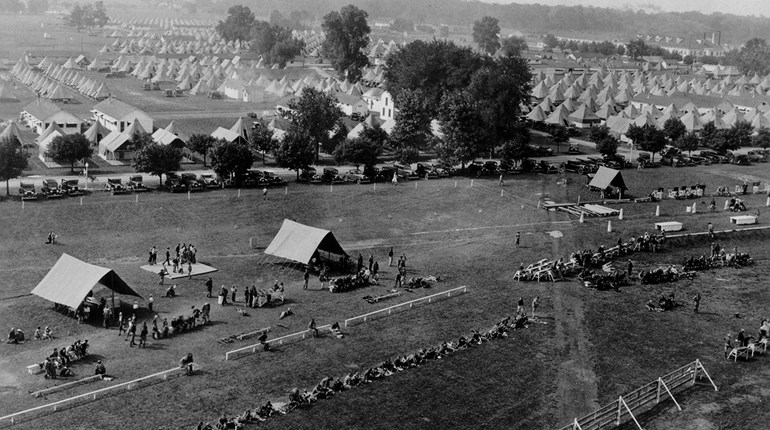
The USPSA National Range Officers Institute (NROI) is responsible for training range officials that work at USPSA competitions. There are 11 Range Master Instructors (RMIs) who travel around the United States teaching the in-person seminars for the Level 1 Range Officer and Level 2 Chief Range Officer certifications. Have you seen advertisements for courses near you and wondered what they are? Are you a Range Officer who is unsure about taking the Chief Range Officer course? Let’s talk about the requirements to take the courses, as well as what the courses cover.
Range Officer (RO)

The first certification level is Range Officer. This is a great course to learn the rules, even if you don’t want to officiate. Knowing the rules makes you a more savvy competitor. To qualify to take this course, you need to be a USPSA member, be classified in either USPSA or SCSA and be at least 13 years old (juniors require references to take the class). The reason we require a classification is because we want to ensure all the students have an idea of how the matches run. It is not easy to teach a seminar where most of the students have never seen a match. If there is a member who wants to take the Range Officer seminar, but is not quite classified, the student can contact the Range Master Instructor and ask for an exception. The Range Master Instructor will ask about match experience and possibly contact info for club members who can vouch for match experience. If the Range Master Instructor feels that the student has sufficient experience to understand the class, he or she will add the student to the class roster.
The USPSA National Range Officers Institute strives to keep our seminars up-to-date and innovative for students. As a result, we now use an online learning management system (LMS) to enhance our seminars. Basically, we have moved the general background information such as target types, scoring methods, course types, competitor equipment and scoresheets to pre-class videos and a short quiz on the LMS. In total, the nine videos are less than an hour of run time, with the longest video running about 12 minutes. Conveying this background info via the LMS helps to ensure that everyone has the same knowledge base before coming to the seminar, and frees up time for active learning and hands-on exercises. It also allows us to focus primarily on how to do the job of an Range Officer in the seminar—range commands, scoring and penalties.
The seminar is eight hours and takes place on a Saturday. Yes, you are probably thinking that sounds boring, but I promise you it isn’t. We have plenty of videos in the seminar, along with rubber gun exercises that get students on their feet. Classes are divided into groups of two or three multiple times during the day to practice range commands, as well as solve some scenarios we provide. By the end of the day, everyone is a little tired of talking about the rules, but we have received multiple comments regarding how the seminar is time well spent, and much more interesting than everyone thought it would be.
On Sunday, the range exercise happens. This usually takes a few hours and students need to run a competitor as timer Range Officer using the proper range commands, and also take a turn as scorekeeper and enter scores on a tablet. We have a couple of stages set up and, on the Virginia Count stage, we give each competitor a card. Some cards say “shoot normally,” while others have a task. None of the tasks will result in a disqualification, but they do provide teaching opportunities. The target array also has no-shoots and hardcover, so shooting anything but alphas is also encouraged, again for teaching purposes. Whether you want to become a Range Officer to help your local matches or to just learn the rules, it is a weekend well spent.
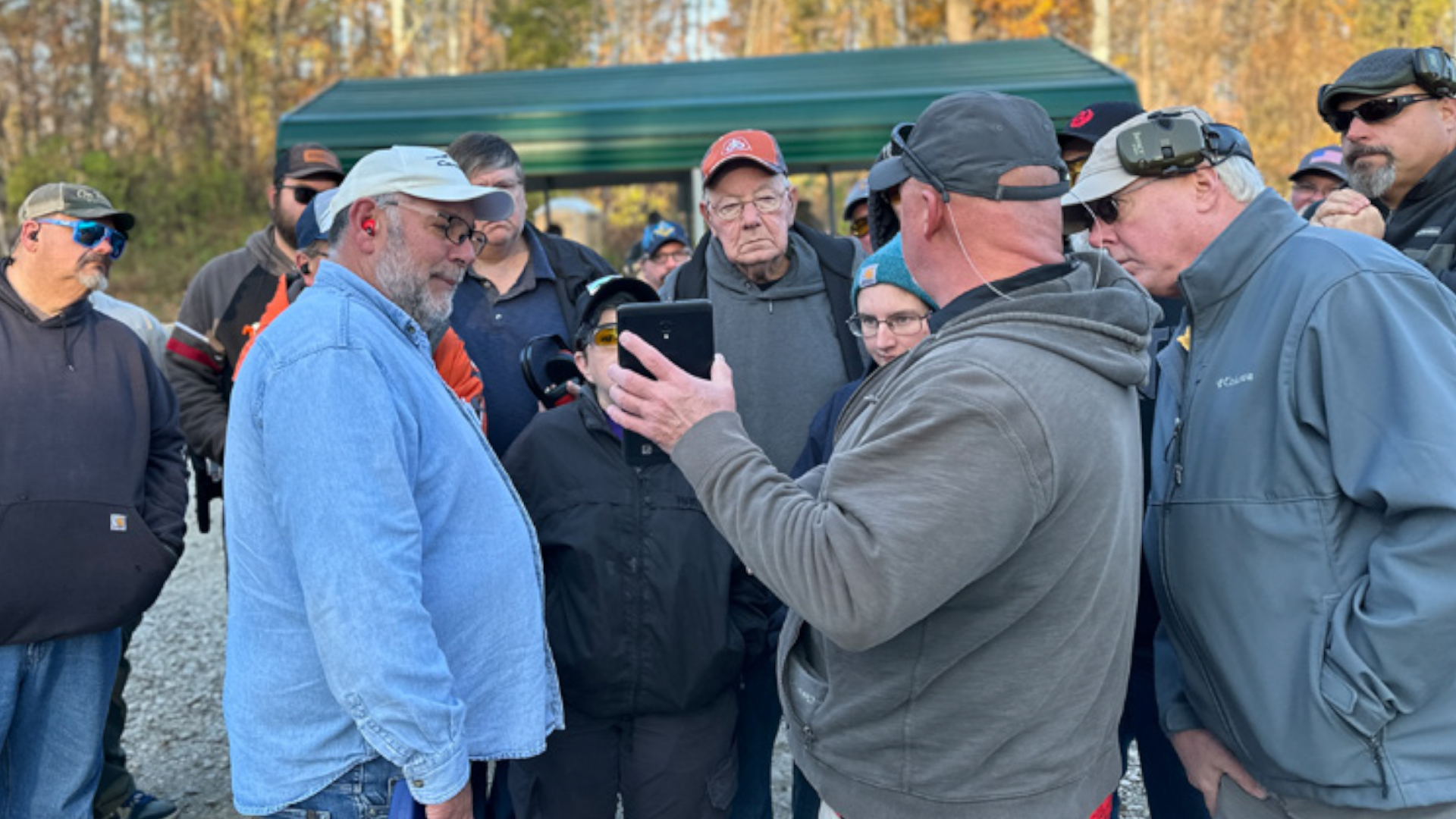
To pass the course, you need to complete the online portion of the class, attend a seminar, pass the range exercise, as well as pass a 50-question test with an 85 percent score or higher. The test is open rulebook and each question is worth two points, one point for the correct multiple choice answer to the question and another point for the correct rule number citation. You get three tries at the exam, but rarely do students need more than one or two attempts. The key to passing the exam is to take your time and choose the best rule, not the first rule you find. The test is administered through the USPSA website and can be worked on gradually over the course of 30 days.
Chief Range Officer (CRO)
After being a Range Officer for a year, you are eligible to earn the next certification level of Chief Range Officer. If you are just short of the year requirement and have worked major matches and maintained your NROI Work Record, you may ask the Range Master Intructor for an exception to attend the Chief Range Officer seminar. The minimum age for the Chief Range Officer course is 18 years. The Chief Range Officer seminar is not a course to learn the rules, because that is covered in the Range Officer seminar. The Chief Range Officer seminar focuses on stage management and stage design.
We now also utilize the learning management system for pre-class background information in the Chief Range Officer seminar. There are five videos (47 minutes total) and a stage design quiz. Chief Range Officer students also must submit a stage design that may be used for the range portion of the class. As with the Range Officer seminar, the pre-class material can be completed at the student’s convenience.
The NROI Chief Range Officer seminar consists of a seminar and what we call boot camp. Basically, the Saturday seminar can be completed in about six hours, and then the class builds stages on the range. During the seminar there are also group exercises involving fixing broken stage designs and scenarios, exercises involving Virginia Count and Fixed Time scoring, along with common things a Chief Range Officer may need to deal with. We also use 3D Stage Builder kits in the Chief Range Officer seminar to build stage models in the classroom. If we are not able to build stages on the range on Saturday afternoon, we build a model of the stages we will build and work out major issues. We also can build other student’s stages in the classroom as time allows.
On Sunday, the stages are built (or finalized) on the range and the team who built the stages acts as the stage staff, while other students shoot the stage. The stages go through the normal Range Master blessing (the Range Master Instructor is the Range Master), and students get pointers on how to build target arrays and stages to last for 300 competitors. We also discuss the best ways to run competitors as a team. And, the class gets to shoot the stages. To pass this course, you need to complete the pre-class materials, participate in class and successfully run competitors through a stage.
Recertification Requirements
To maintain your Range Officer or Chief Range Officer certification, you must take a 20-question renewal exam each year and again pass with an 85 percent or higher. You get three tries at the exam. The exam is available a month before your expiration date (which is the day you got certified, not your membership date), and you have up to six months after expiration to take the automated exam on the USPSA website. If you are expired longer than six months, you can regain your certification by requesting a 50-question exam up to a year after expiration. If you are expired for over a year, you must retake the Range Officer seminar (or Chief Range Officer seminar if an expired Chief Range Officer).
SCSA and Multigun Endorsement
Any currently certified Range Officer, Chief Range Officer and Range Master is eligible to take the SCSA and Multigun Endorsement classes for free. These courses are 100 percent online and focus on the differences between SCSA or Multigun rules and the USPSA Competition rules, hence the need to be a certified Range Officer before taking them. You can self-enroll in these courses at the USPSA website. These courses are conducted through the LMS and the final exams are on the USPSA website. Once these endorsements are earned, five additional questions are added to your annual renewal exam. For example, if you are a Range Officer with both the SCSA and Multigun endorsements, your annual exam will have 20 questions from the USPSA Competition rules, five questions from the SCSA rules and five questions from the Multigun rules for a total of 30 questions.
Continuing Education
NROI also has a few ways for currently certified range officials to keep up to date on the rules and to also further understanding of the rules. The first is USPSA magazine. Troy McManus, the DNROI, has a column in each issue and other RMIs often contribute articles. Since February 2019, we also have been publishing weekly posts on the NROI Blog. You can join the blog mailing list and get an email each Thursday when we publish a post. You can also visit the blog to cast your vote in the Question of the Month. Are you more of a person who likes to listen? Since November 2021, we have been recording the NROI Podcast, which is available at the USPSA website and NROI Blog. In addition, the NROI Podcast be found on all major podcast streaming platforms. As always, if you have questions, please contact us at [email protected].
Course Registration
You can register for the Range Officer and Chief Range Officer seminars at the USPSA website. We often get asked, “Why isn’t there a seminar in my area?” Well, we need clubs to volunteer to host the seminars. If you and your club are interested in hosting a seminar, you can find that info on the USPSA website as well—go to uspsa.org/nroi_seminar/information.
Article from the March/April 2024 issue of USPSA’s magazine.













